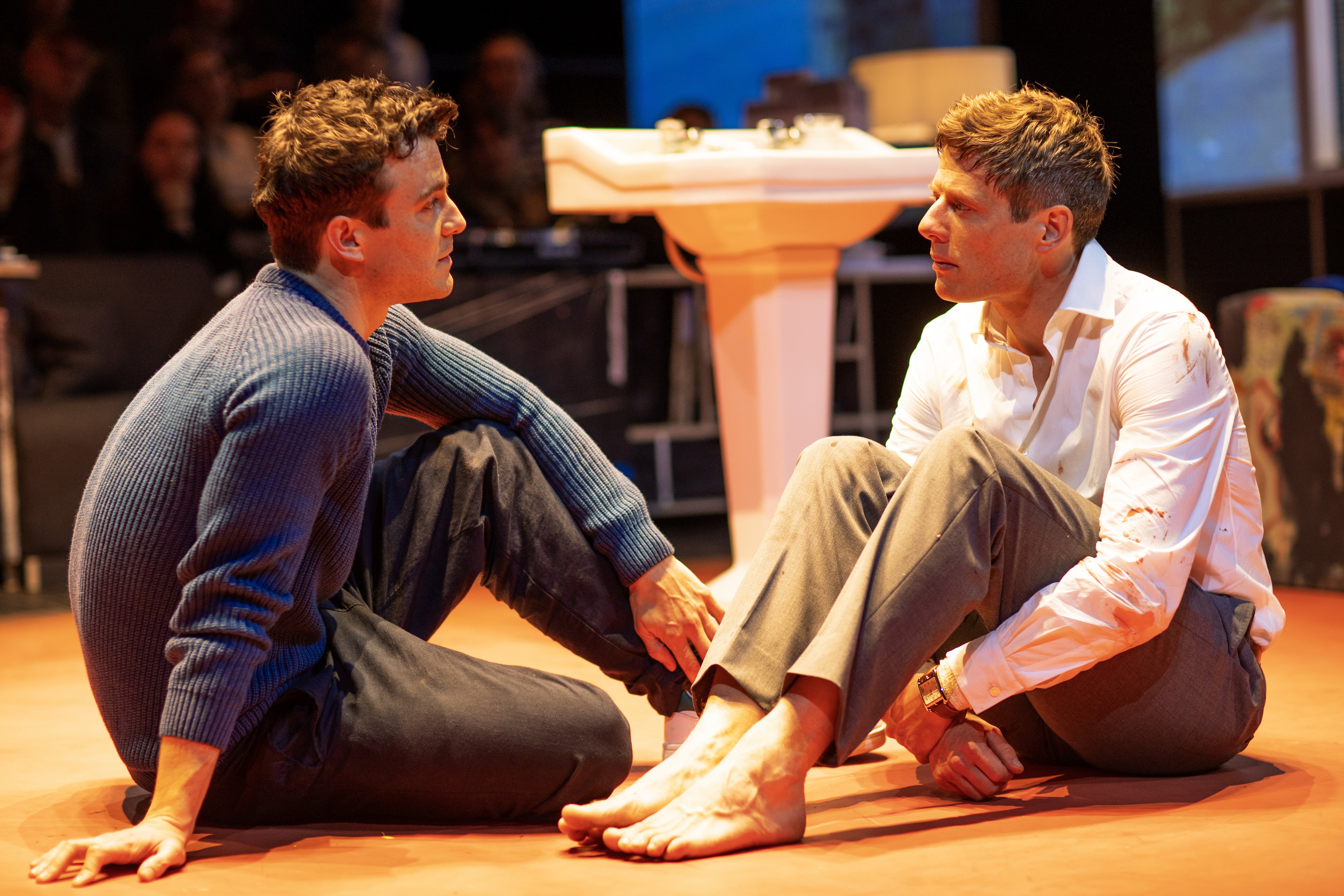
Just as medieval peasants sought escape from their humdrum lives by gawping at lurid paintings of bleeding saints, so modern audiences are flocking to A Little Life, a gruelling, blood-soaked narrative of one man’s suffering. Ivo Van Hove’s epic, bladder-testing, nearly four-hour adaptation takes all the pain in Hanya Yanagihara’s 2015 novel and re-enacts it in graphic detail. Its star James Norton is pretty much constantly drenched in blood, often naked, and always being either psychologically or physically tortured. I could feel the people around me sobbing and covering their eyes and sometimes I did too. But I also felt manipulated by its naive and psychologically incurious narrative of abuse.
It centres on Jude, who’s got a full house of traumas: repeatedly raped and tortured by monks as a child, emotionally and physically abused as an adult. As he goes through adult life, he tries to form a normal life as a New York lawyer, going to hip parties with his mostly gay group of friends: Willem (Luke Thompson, who develops beautifully from coolness to warmth), JB (Omari Douglas) and Malcolm (Zach Wyatt), as well as his adoptive father Harold (Zubin Varla). Still, his self-destructive impulses constantly drag him back down into misery.
There’s something borderline pornographic to the intensity with which Van Hove’s production both describes and depicts this novel’s events. Screens display rolling footage of New York’s streets, creating a mundane backdrop to the emotional gladiatorial arena on the centre of the stage. When Jude has the urge to self-harm, the screens grow white and fuzzy; after he’s cut himself, their colours shine brighter. This is pretty much Van Hove’s only directorial attempt to evoke the emotions behind Jude’s painful experiences, rather than just baldly depict them.
Much will be made of Norton’s bravery in spending so much of this play naked, cutting himself, or being part of harrowing scenes of child abuse. And yes, it’s impressive. But somehow Norton doesn’t convey Jude’s inner life, or do enough to make you desperately root for him.
That’s partly the fault of Van Hove’s cold, surgical, humourless adaptation, but it’s more so the fault of Yanagihara’s book itself. There’s a child-like naivety to Yanagihara’s sense of how the world works. Here, it’s perfectly possible to be dealing with life-altering physical and mental disabilities while simultaneously having an unimpeded career as a top New York corporate lawyer, and also volunteering at a soup kitchen at weekends. The same doctor who treats Jude for every self-harm injury is personally responsible for sawing his legs off when they need amputating – yet this walking insult to the Hippocratic Oath never once gets Jude hospitalised or even medicated for his mental health struggles.

Yanagihara’s perspective seems to be that abuse messes you up for life, making emotional intimacy almost impossible and suicide the only way out. Van Hove’s production reinforces that, creating a production that’s so painful to watch that, like Jude, you wish it would all just stop. But it’s both a hugely irresponsible message, and a false one. Real-life suffering is more complex, interspersed with moments of joy, care and healing – and recovery is too precious to give up on.
There’s a kind of confirmation bias that makes people assume that when they see a very long play or read a very long book, they’re engaging with a great work. In the case of A Little Life, I don’t think they are. If you want to be immersed in other peoples’ pain, go and spend four hours in A&E: it’s cheaper, just as agonising, and you can have a wee whenever you want.







